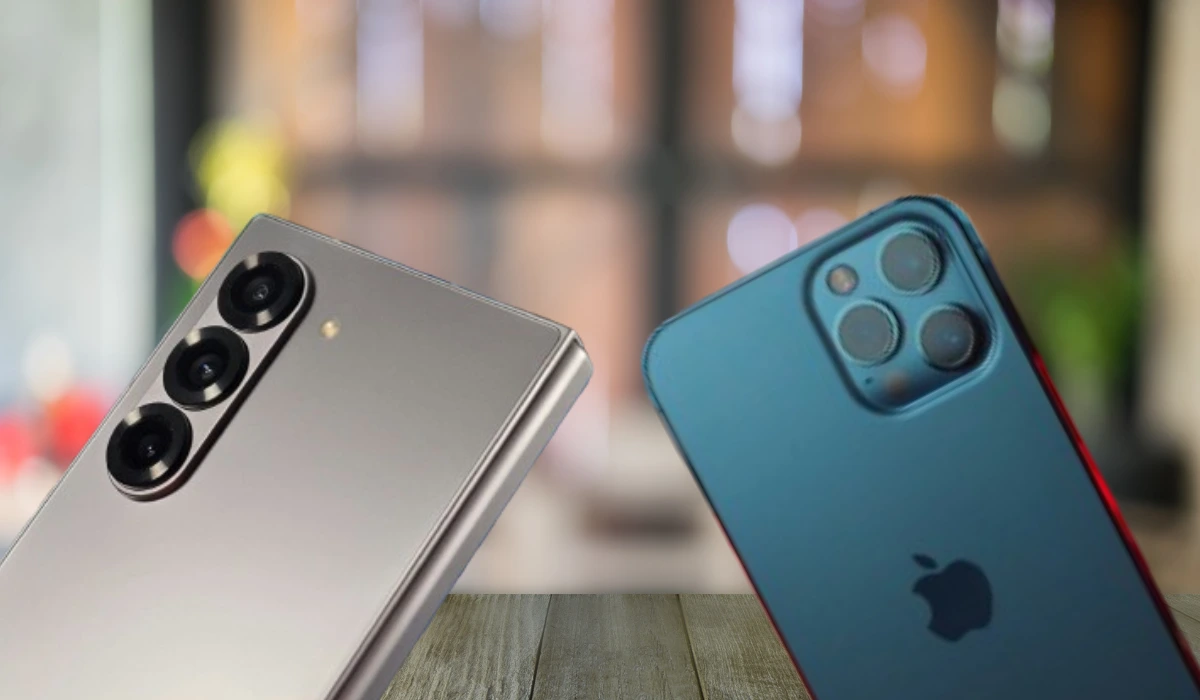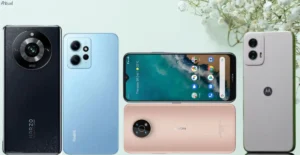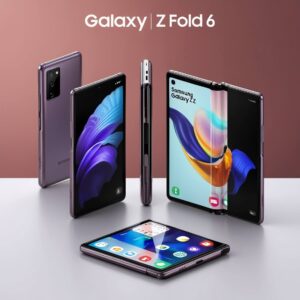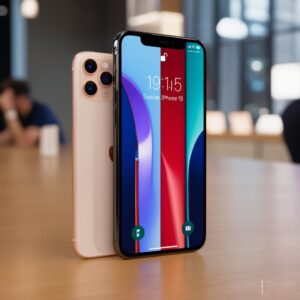Choosing between iPhone and Android is like choosing between coffee and tea. Both are very popular, with loyal fans and unique perks. Both Smartphones have come a long way. You may prefer the iPhone’s sleek design or Android’s endless customization. But how do you decide which is right for you? Let’s explore the key differences, benefits, and challenges of each. This will help you make an informed choice.
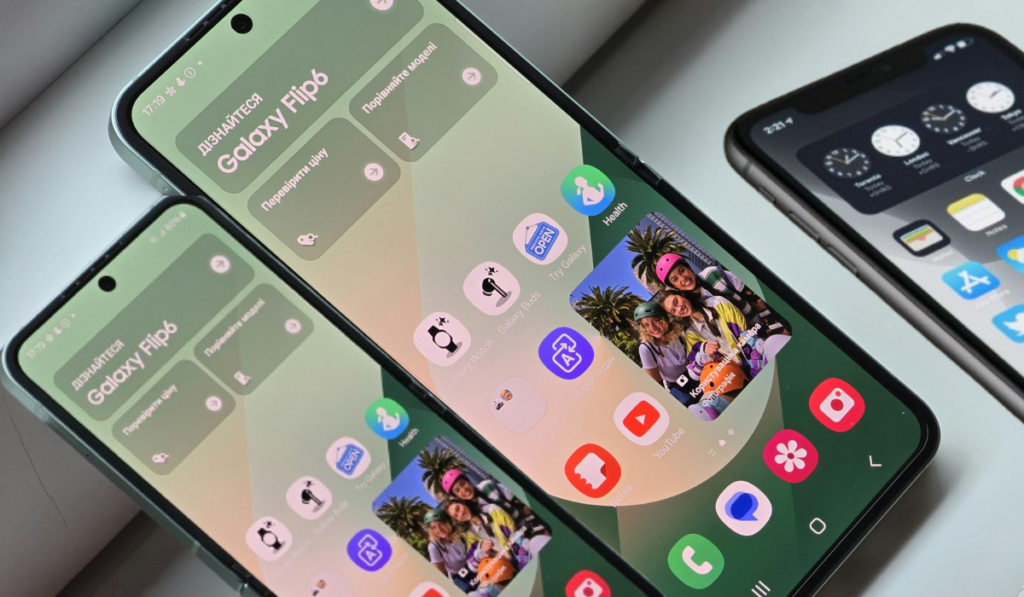
1. A Quick Comparison of iPhone and Android
Before we jump into the finer details, let’s start with a quick overview:
- iPhone: Its seamless ecosystem, high performance, and regular updates make it popular. Users seek a polished, cohesive experience.
- Android offers more customization and device choices at various prices. It appeals to users who want flexibility and freedom in their phone experience.
These basic distinctions only scratch the surface. Let’s examine each platform’s offerings in more detail.
2. iPhone vs. Android Performance
Performance is a major consideration when selecting a phone.
iPhones have Apple’s A-series chips. They top benchmark charts. They deliver fast, smooth performance in all apps, from games to multitasking. This is primarily due to Apple controlling the hardware and software. This allows for performance that is both optimized and stable.
Android phones, however, vary greatly by manufacturer and model. Flagship models from Samsung, Google, and OnePlus use Snapdragon chips. They offer exceptional performance. But, performance may vary across mid-range and budget Android devices.
Verdict: If you value consistency, the iPhone’s performance may be better. If you’re tech-savvy and willing to explore, try high-end Androids. They can match or even surpass iPhones in some ways.
3. iPhone vs. Android Security
Security is vital today, in our digital world.
Apple enforces strict control over iOS security. It updates iPhones regularly to protect users from new threats. Apple’s App Store also has strict screenings, reducing the risk of malware.
Android is open-source and customizable. So, it faces more security risks. But, Google has improved its privacy settings and Play Protect. Still, some apps might slip through the cracks due to the open nature of the platform.
Verdict: For high security with little effort, the iPhone is usually safer. However, Android’s open-source model lets you set up advanced security, if you’re proactive.
4. Customization: iPhone vs. Android Flexibility
One of Android’s biggest selling points is its unmatched customization. From home screen widgets to custom ROMs, Android is very flexible. It lets users customize their devices to their liking. Want a specific launcher? No problem. Fancy a different icon pack? Go for it.
The iPhone, on the other hand, offers a sleek experience. It limits customization to keep a consistent look and feel. Recent iOS updates added some customization, like widgets and app icon changes. But, it’s nowhere near the level Android provides.
Verdict: For the best customization, choose Android. It allows you to customize your device to reflect your individuality.
5. iPhone vs. Android Camera Quality
Many users care about camera quality. Phones are replacing traditional cameras, so it’s a top concern.
iPhones are known for their powerful cameras, especially the Pro models. They perform well in varying light. Apple’s computational photography, like Deep Fusion and Smart HDR, produces high-quality, true-to-life images.
Android also boasts fantastic cameras. The Google Pixel and Samsung Galaxy models are known for stunning photos. Google’s Pixel phones use advanced AI for photography. They often excel in low light and have vibrant colors.
Verdict: Both iPhone and Android have great cameras. The choice is often personal preference. iPhones may have more natural tones. Androids have better, customizable camera features.
iPhone vs Android: Which One is Right For You?
6. Battery Life: Which Lasts Longer?
Battery life can make or break a smartphone. Both iPhones and Androids have their pros and cons.
iPhones usually have great battery life. Their hardware and software work well together. Also, recent iPhones have better battery-saving features. They are now competitive in this area.
Android phones have varied battery performance. It depends on the model, as they have different battery sizes and settings. Many Android models have larger batteries. Flagship Android devices often last longer on a single charge. Additionally, Android provides users with more granular battery management options.
Verdict: If battery life is vital, some Android devices are better. They have larger batteries and more control over battery use. However, iPhones are extremely efficient and generally offer good battery life.
7. iPhone vs. Android Ecosystem
Apple has built an impressive ecosystem. It connects all its products, from iPhones and iPads to Macs and Apple Watches. This Apple ecosystem offers a seamless, integrated experience. Think AirDrop, Handoff, and iCloud continuity. They make switching between Apple devices effortlessly.
While less centralized, android still has a strong ecosystem, especially with Google services. Android users can integrate their devices with Chromebooks, Google Nest, and Android TV. Samsung has an Android ecosystem. It offers a similar but less exclusive experience than Apple’s.
Verdict: The iPhone’s ecosystem is a big plus for Apple product owners. Android users have an improving but still fragmented ecosystem. It lags behind Apple’s smooth connections.
8. The Cost Factor: iPhone and Android Pricing Options
Price is often a deal breaker when choosing between iPhone and Android.
iPhones have a premium price. Newer models cost more than many Androids. Apple has some budget options, like the iPhone SE. But, they are limited.
Android, on the other hand, has a wide price range. It includes budget models and premium flagship devices. Brands like Samsung, Google, and Xiaomi offer many options, helping users find a budget smartphone.
Verdict: If budget is a concern, Android offers a wider variety of options at various price points.
9. Software Updates: How Often Do iPhones and Androids Receive Them?
People know Apple for its long software support. It often updates iPhones for five years or more. This keeps older iPhones up to date and compatible with new apps and security features.
Android, yet, varies in software update frequency. Google Pixel phones receive regular updates, but other Android manufacturers might lag. Recently, brands like Samsung have improved their update schedules. They now promise three to five years of support for their high-end devices.
Verdict: If you want a device that stays updated longer, the iPhone has an edge. Some Android brands are catching up, but, Apple’s support remains the best in the industry.
10. iPhone and Android User Experience
The iPhone is often praised for its simple, user-friendly design. The iOS interface is intuitive and easy to use. It’s popular among users who want a simple smartphone.
Android offer a wider range of user experiences. Each manufacturer customizes the software. This diversity gives users more choice but can make Android feel less unified.
Verdict: For a simple, cohesive experience, the iPhone is better. Android wins for more variety and customization in the user interface.
11. Gaming: iPhone vs. Android for Gamers
Both iPhones and high-end Android phones perform well for gaming. Apple’s optimized hardware and software give it an edge. They deliver consistent gaming performance, especially in graphics and frame rates.
Android has many gaming options, ranging from exclusive games on the Google Play Store to emulators. High-end Android phones can match the iPhone in gaming, but, they may lack the same level of developer support for mobile game optimization.
Verdict: Both are strong contenders. But, iPhones are often better for gaming.
12. The Verdict: Which is Right for You?
Choosing between iPhone and Android depends on your priorities. The iPhone may be ideal if you want a polished, secure, and consistent experience. It has a well-connected ecosystem. But, if you value flexibility and customization, choose Android. It has more price options.
FAQs
- Which is more secure, iPhone or Android?
iPhone has better security. Apple’s strict policies and updates help. Android has improved, especially with Google Play Protect.
- Can you switch easily from Android to iPhone or vice versa?
Yes, but it can take some adjustment. Apple and Google both offer apps to help you transfer data smoothly.
- Which is better for gaming: iPhone or Android?
iPhone often provides better gaming optimization, although high-end Androids can also perform exceptionally well.
- Do iPhones last longer than Androids?
iPhones tend to receive longer software support, which can extend their lifespan. However, high-quality Androids can also last if maintained well.
- Is iPhone better than Android for photography?
Both have excellent cameras, and depending on the model, both can deliver professional-quality photos. iPhones may offer a more consistent experience, while Androids allow more control and variety across brands.

